2015-2016 Mentorship Participants
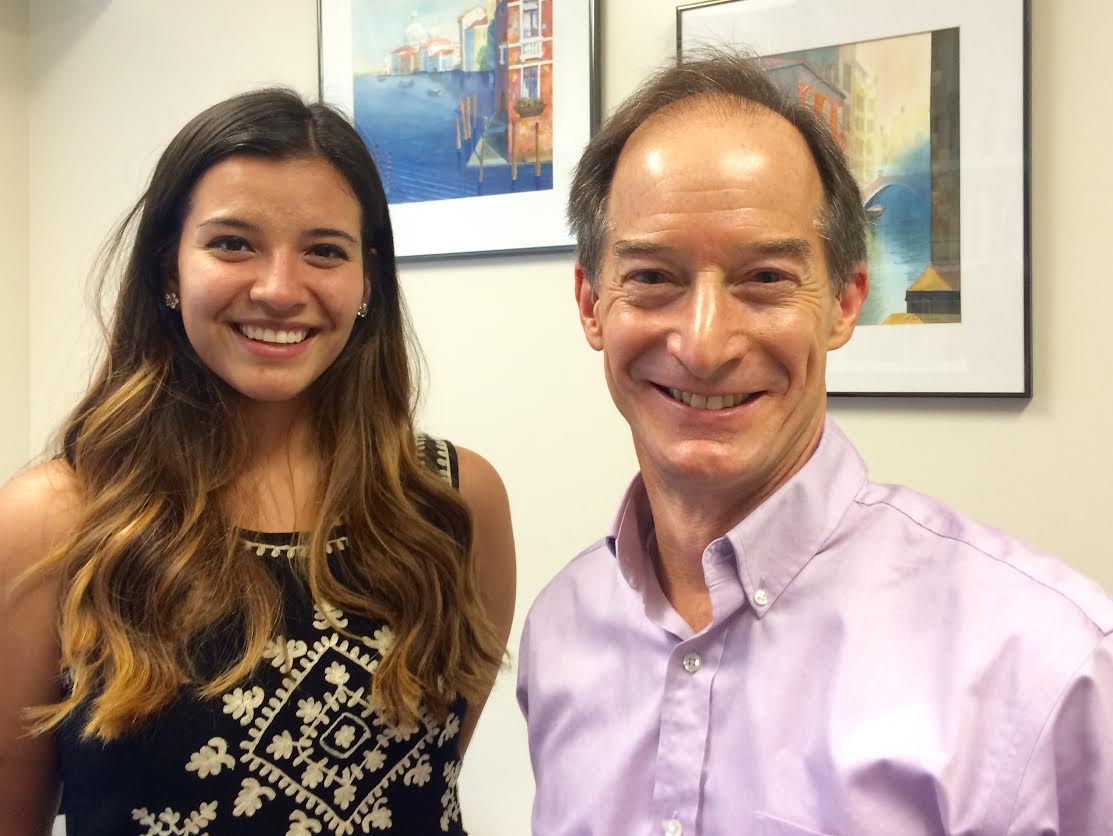 Jasmin Aleman is a third year majoring is Philosophy with a minor in Politics. She was born and raised in the Coachella Valley in Southern California. She is the second oldest of five children and a first generation student. A believer in human rights, Jasmin has been raising money to build wells in Nepal and finding shelter for the homeless. She is also a part of Ethics Bowl at UCSC, which is the philosophy debate team that tests ethical theories through moral dilemmas. Jasmin was awarded the UCSC Blum grant for her research on the barriers that homeless veterans face in the Santa Cruz County. Her research on homeless veterans has made her an advocate for public policy in housing programs, such as Supportive Services for Veteran Families at the Homeless Services Center. Jasmin is interested in the U.S. military justice system and the ethics behind what the U.S. is doing abroad and domestically. Later this year she will be studying abroad in Tokyo, Japan studying Global and International Studies at Meiji Gakuin University and interning at the United Nations Refugee Agency in Tokyo. She is hoping to apply to law school to pursue her career as a district attorney and eventually become part of the JAG corps.
Jasmin Aleman is a third year majoring is Philosophy with a minor in Politics. She was born and raised in the Coachella Valley in Southern California. She is the second oldest of five children and a first generation student. A believer in human rights, Jasmin has been raising money to build wells in Nepal and finding shelter for the homeless. She is also a part of Ethics Bowl at UCSC, which is the philosophy debate team that tests ethical theories through moral dilemmas. Jasmin was awarded the UCSC Blum grant for her research on the barriers that homeless veterans face in the Santa Cruz County. Her research on homeless veterans has made her an advocate for public policy in housing programs, such as Supportive Services for Veteran Families at the Homeless Services Center. Jasmin is interested in the U.S. military justice system and the ethics behind what the U.S. is doing abroad and domestically. Later this year she will be studying abroad in Tokyo, Japan studying Global and International Studies at Meiji Gakuin University and interning at the United Nations Refugee Agency in Tokyo. She is hoping to apply to law school to pursue her career as a district attorney and eventually become part of the JAG corps.
Summary of the Project
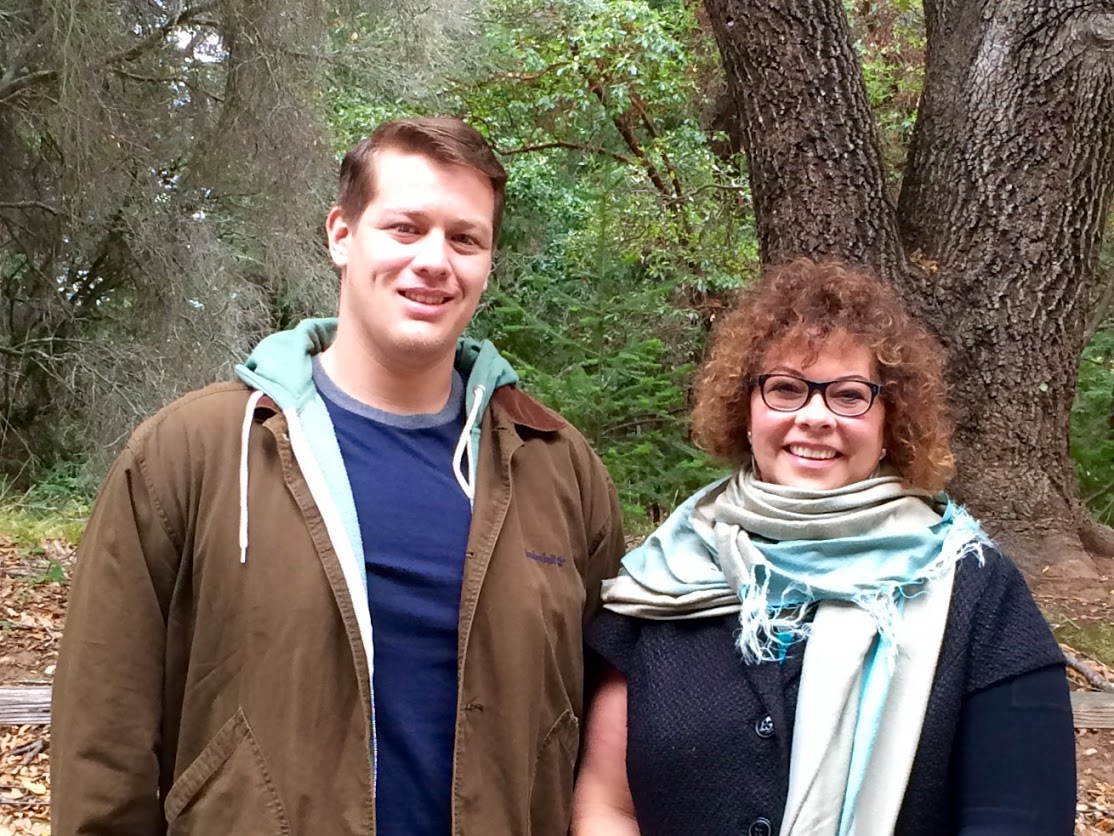
Dr. Gabriela Arredondo is a professor in the Latin American & Latino Studies Department. She is the author of Mexican Chicago: Race, Identity and Nation, 1916-1939 (Illinois, 2008) and co-editor of Chicana Feminisms: A Critical Reader (Duke, 2003). Current research projects include a history of pro-immigrant organizations and a comparative project on historical constructions of racial mixing. The Organization of American Historians elected her to serve as Distinguished Lecturer, and she won a Golden Apple Teaching Award in recognition of her passion for teaching.
For this project we will be conducting research on the history of multiracial social movements and prominent civil rights figures, organizations, and advocacy groups in the United States during the 20th century. Our research will be crucial to developing a book manuscript with chapters analyzing a various social movements and civil rights organizations in which multiracial coalitions were central to the work they did. Organizations being researched include the Mexican American Legal Defense and Education Fund (MALDEF), United Farm Workers (UFW), League of United Latin American Citizens (LULAC), National Association for the Advancement of Colored People (NAACP), and other associations with legacies of ethno-racial cooperation that have accomplished or supported significant social advancements for historically excluded populations. We will be conducting archival research, literature reviews, and using a cross-disciplinary framework to analyze the historical constructions of racial mixing as well as the main struggles and accomplishments of these organizations.
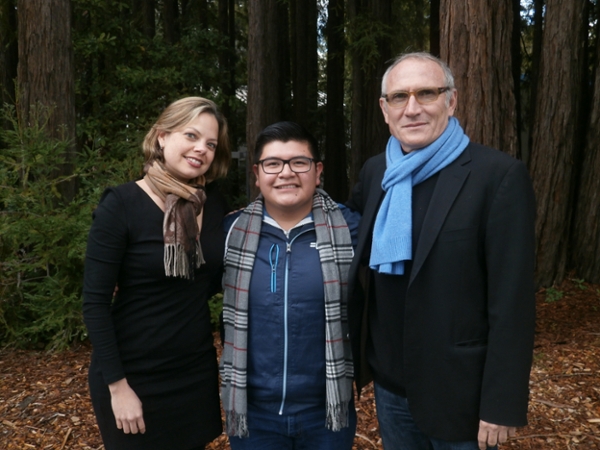 Héctor González Rodas was born in Retalhuleu, Guatemala, and immigrated to California when he was ten years old. He is the oldest of four children and the first in his family to attend college. As an undocumented student, seeing the struggles and sacrifices his parents have made for him have motivated Héctor to take on every opportunity that comes his way. He is a senior majoring in Spanish Studies with a concentration in Literature and Culture. Since his freshman year, he has had the opportunity to work as a mentor, advisor, and tutor for many students; his dedication and passion for guiding and empowering students is to help them achieve their academic and lifelong goals. He knows that he will be able to gain crucial learning experience through this program, as his overall academic goal is to obtain a Ph.D. in Spanish Literature. Ultimately, he wants to become a professor and make an impact on students’ lives, just as many professors within the Spanish Department have done for him. He would like to personally thank Profesora Vanessa Fernández, Profesor Jordi Aladro-Font, and Profesora M. Victoria González-Pagani for the encouragement and support they have provided Héctor during his time at UCSC.
Héctor González Rodas was born in Retalhuleu, Guatemala, and immigrated to California when he was ten years old. He is the oldest of four children and the first in his family to attend college. As an undocumented student, seeing the struggles and sacrifices his parents have made for him have motivated Héctor to take on every opportunity that comes his way. He is a senior majoring in Spanish Studies with a concentration in Literature and Culture. Since his freshman year, he has had the opportunity to work as a mentor, advisor, and tutor for many students; his dedication and passion for guiding and empowering students is to help them achieve their academic and lifelong goals. He knows that he will be able to gain crucial learning experience through this program, as his overall academic goal is to obtain a Ph.D. in Spanish Literature. Ultimately, he wants to become a professor and make an impact on students’ lives, just as many professors within the Spanish Department have done for him. He would like to personally thank Profesora Vanessa Fernández, Profesor Jordi Aladro-Font, and Profesora M. Victoria González-Pagani for the encouragement and support they have provided Héctor during his time at UCSC.Vanessa Marie Fernández completed her PhD in Hispanic Languages and Literatures from the University of California, Los Angeles in 2013. She has been a lecturer at Rice University in Houston and an Assistant Professor of Spanish at Duquesne University in Pittsburgh. Currently, she is a Visiting Assistant Professor in the Literature Department at the University of California, Santa Cruz and will begin her new position as Assistant Professor of Spanish at San José State University in Fall 2016. Her book project, “Bridging the Atlantic: Debating Modernity Across Argentine, Mexican, and Spanish Literary Magazines (1920-1930),” argues that print culture generated a complex network of exchange amongst avant-garde movements that sheds new light on the development of Latin America and Spain’s post-colonial relationship during the 1920s. Scholarship has primarily evaluated these publications as sites of national formation, but this book demonstrates that journals, magazines, and newspapers created a porous cosmopolitan imaginary where borders were constructed, deconstructed, and redrawn.
Summary of the Project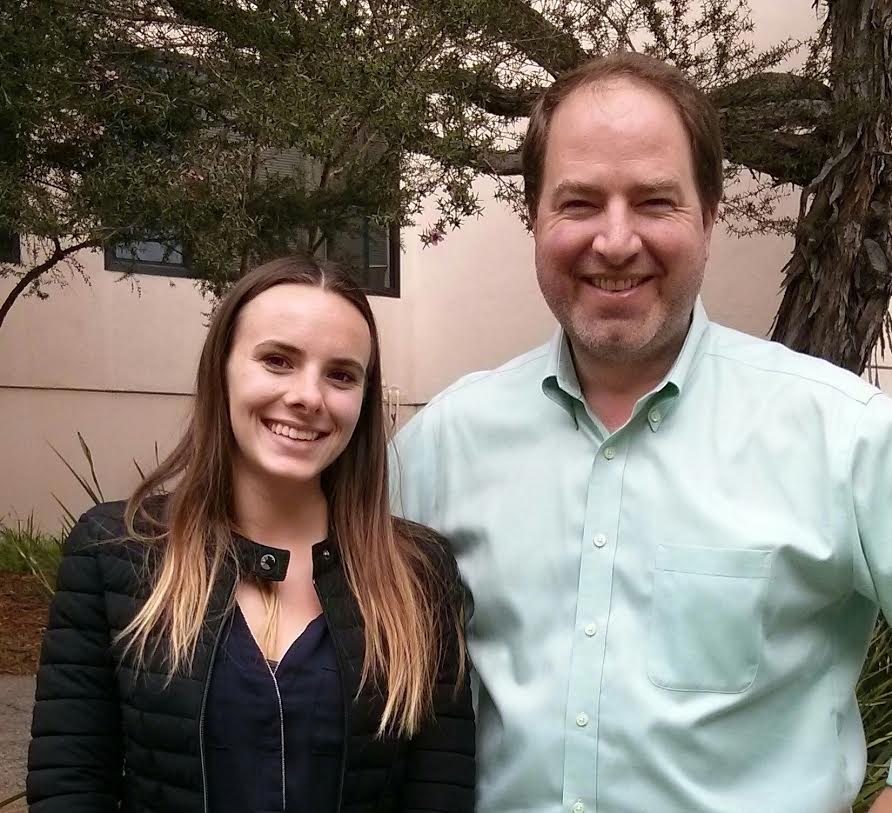 Born in Austin, Texas, Brittany Young lived overseas throughout her life before starting University at UC Santa Cruz in 2014. She is currently a second year student majoring in Politics and Physics with an academic focus on where Technology and Policy intersect. She recently finished an internship in Dresden, Germany for Government Relations at the worlds first full-service semiconductor foundry, GLOBALFOUNDRIES. She enjoys traveling overseas frequently and was excited to be in Greece over the summer when the Banks shutdown.
Born in Austin, Texas, Brittany Young lived overseas throughout her life before starting University at UC Santa Cruz in 2014. She is currently a second year student majoring in Politics and Physics with an academic focus on where Technology and Policy intersect. She recently finished an internship in Dresden, Germany for Government Relations at the worlds first full-service semiconductor foundry, GLOBALFOUNDRIES. She enjoys traveling overseas frequently and was excited to be in Greece over the summer when the Banks shutdown.Benjamin L. Read is an Associate Professor of Politics at UC Santa Cruz. His book, Roots of the State: Neighborhood Organization and Social Networks in Beijing and Taipei (Stanford University Press, 2012) used surveys, interviews, and participant observation to compare the ways in which constituents perceive and interact with the urban administrative structures found in China, Taiwan, and elsewhere in the region. With Diana Kapiszewski and Lauren Morris MacLean, he is coauthor of Field Research in Political Science: Practices and Principles (Cambridge University Press, 2015). He edited Local Organizations and Urban Governance in East and Southeast Asia: Straddling State and Society (Routledge, 2009), also on the role of state sponsored organizations, and has published research on civil society groups as well, including China's nascent homeowner associations. His articles have appeared in the Journal of Conflict Resolution, Comparative Political Studies, the China Journal, the China Quarterly, the Washington Quarterly, and several edited books. He earned his Ph.D. in Government at Harvard University in 2003.
Summary of the Project
This project explores urban democracy in Taiwan. In particular, it examines the workings of city councils in Taipei, Kaohsiung, and elsewhere. Council members are elected every four years in free and open elections. But to what extent do they hold mayors and city governments accountable through mechanisms like hearings and budget oversight? In what sense does their work, often focusing heavily on favors to individual households through constituent service, constitute a form of representation? In addressing questions like these, the project aims to understand both the value and limitations of local democratic institutions.
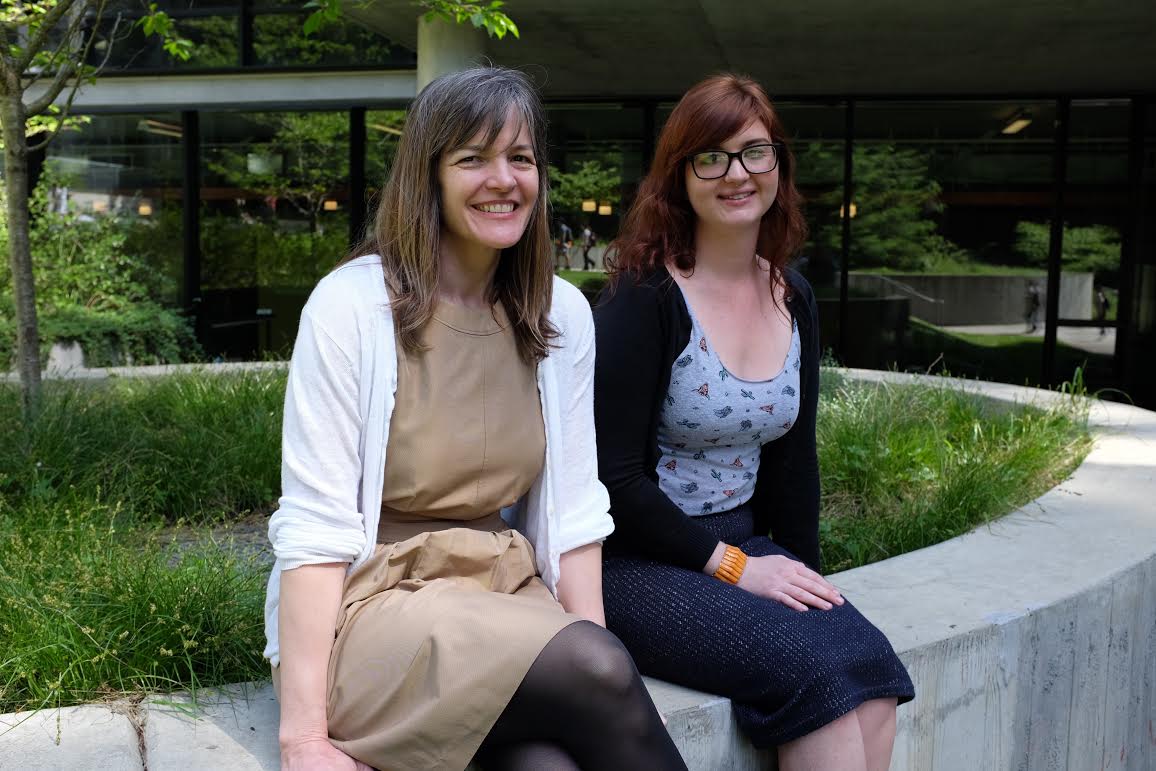 Erin Edwards is a fourth year transfer student in the History of Art and Visual Culture program who plans to pursue a graduate degree in visual cultural studies. Her research interests include postcolonial and diaspora studies explored in contemporary visual culture, tracing the transformation of urban and suburban street-facing architecture in relation to community life. Erin has conducted research previously into architecture and use of space in Vietnamese neighborhoods in the United States after the fall of Saigon in 1975. In her studies, she hopes to gain a deeper understanding of the politics of migration and citizenship in film and media.
Erin Edwards is a fourth year transfer student in the History of Art and Visual Culture program who plans to pursue a graduate degree in visual cultural studies. Her research interests include postcolonial and diaspora studies explored in contemporary visual culture, tracing the transformation of urban and suburban street-facing architecture in relation to community life. Erin has conducted research previously into architecture and use of space in Vietnamese neighborhoods in the United States after the fall of Saigon in 1975. In her studies, she hopes to gain a deeper understanding of the politics of migration and citizenship in film and media.
Jennifer Horne’s area of expertise is nontheatrical film and media, with an emphasis on the history of the factual film in social and institutional contexts. Her research interests span media citizenship, the history of institutional uses of film/video, media archaeologies, film exhibition histories, areas of film preservation and archiving that shape our understanding of film culture, and all aspects of these areas which touch gender and feminist history. Her publications include articles on nonfiction film and documentary film in The Moving Image and The Historical Journal of Film, Radio, and Television, and essays about the circulation of nonfiction media in Useful Cinema (Duke University Press, 2011), and Beyond the Screen: Institutions, Networks and Publics of Early Cinema (John Libbey, 2012) and The Documentary Film Reader (2015). Her expert commentary about early sponsored public health films was included in More Treasures from American Film Archives. Prof. Horne is on the editorial advisory board of Camera Obscura and has represented the Society for Cinema and Media Studies on the National Film Preservation Board since 2005.
Summary of the Project
The project explores the scholarly literature of civic membership in the American Progressive-Era contexts of immigration, labor, and public education. Together we are working to create a critical biography that will help us to establish the parameters of analysis used to describe sites of mass spectatorship in cities such as Cleveland, Detroit, and San Francisco and in which the legal category of "citizen" was employed as a basis for inclusion or exclusion. We are looking beyond the spheres of electoral politics and war campaigns to examine where the spectator-citizen was created and for what purposes and to what community ends. This research is primarily historical but will explore theoretical realms for the purposes of understanding how exactly broader conceptual markers established both the parameters of the visual and the conception of the citizen. The research will ultimately be incorporated into the first chapter of Jennifer Horne's new book, Civic Cinema, which will be published by the University of Illinois Press.
